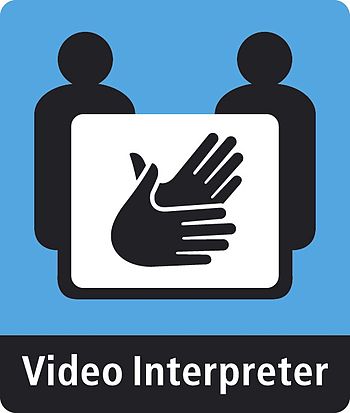 By Joanne Greenberg
By Joanne Greenberg
Mainstreaming blew in during the ’70s and ’80s on the same wind as the breaking up of state mental hospitals, and with the same emotions; end the stigma, expand what is “normal” to include everyone. Differences will disappear and a better society will result. The “gesturing” and facial expressions shouldn’t be a barrier between the hearing and the Deaf. At the same time, American Sign had been shown to be an authentic language, and not simply a set of gestures. Deaf people were moved into the public schools, along with other handicapped children. Blind, learning disabled, etc.
The parents of these children, were the first to demand this inclusion. The Deaf form a special subculture different from all others. Army brats, circus children, Amish children are raised in their subcultures from their babyhood, to be adults in those subcultures. But the parents of Deaf children are overwhelmingly hearing. The only faintly, comparable example might be the raising of Gay children by straight parents. But the language they both speak is the same, so even that example fails.

Gallaudet University baseball team (then: National Deaf-Mute College), 1886. (Photo credit: Wikipedia)
The parents of these children wanted ‘normal’ kids. They also tacitly accepted the use of Sign language. Why not use what was then called, ‘the least restrictive environment,’ which had been urged by the reformers? Why not send an interpreter with every Deaf child, to interpret what was said in class? The idea was well meant, certainly. Was it naive? Certainly. Who interprets the school bathroom? The playground? The cliques? The socializing? The after-school? Unless their parents are Deaf, the students enter the school as foreigners from birth.

A Video Interpreter sign used at videophone stations in public places where a Deaf, Hard-Of-Hearing or Speech-Impaired can communicate with a hearing person via a Video Relay Service. (Photo credit: Wikipedia)
I’m not referring here, to HOH kids, some of whom, with powerful hearing aids and lots of backup can make it through mainstreaming in local schools.
The parents of Deaf children, are faced with a hard choice. Send the child away to residential school, at a young age – where she will be admitted into a world, over which they (her parents) have no control – and which are foreign to them. Or keep her at home, where she will stay, uncomprehending and being passed along from class to class. Many of these children are tolerated, but very seldom accepted.
Interpreters translate, they do not explain. An interpreter cannot stop classroom instruction to make sure that the concepts familiar to all hearing children, are made clear to the single Deaf child, who may be in the class. Who needs an explanation of the difference between rights and right, between contract and contract, between running out of coffee and running for office? Is there time for an interpreter to separate the demotic ‘cool’ from a word meaning a degree of temperature.
Deaf people go to prisons and mental hospitals, at a higher rate than the hearing. This is not surprising, given the lack of communication between the hearing and Deaf environments. Kids learn passively – by osmosis – attitudes and expectations of the world around them. Without early, constant specific attention and education, Deaf children miss cultural as well as intellectual messages, and information. Nobody consciously teaches the hearing child his culture, or subculture. These he internalizes at an early age. Schools for the Deaf can accomplish this, better than mainstream schools – even with the best interpreters available.
Joanne Greenberg was born in 1932, in Brooklyn, NY. She was educated at American University and received and honorary Doctorate from Gallaudet University – the world’s only college for the Deaf. She has written 2 books on the subject and has spent decades working with state mental hospitals for appropriate care for the mentally ill Deaf.






Pingback: Open Letter to Florida Clemency Board | deafinprison